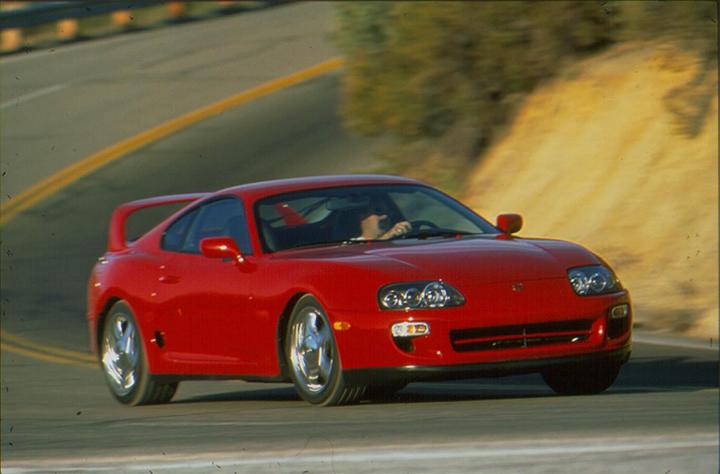
It’s hard to believe now, but Toyota once had a fleet of sporty cars.
Standing head and shoulders above all of the Celicas, MR2s, and Corolla AE86s was the Supra. Over a career spanning 24 years and four generations, the Supra proved that Toyota had a soul.
The Supra went out of production in 2002, and Toyota has definitely lost its soul since then. Good news, though: Yahoo! Autos reports that a new Supra is on the way!
Toyota President and CEO Akio Toyoda is reportedly pushing the project as part of his ongoing effort to get more exciting cars into the hands of customers. Toyota’s new chairman, Takeshi Uchiyamada, has also expressed interest in a flagship sports car for the brand, one that could slot above the GT86 (aka Scion FR-S) in the lineup.
However, this new Supra could be a different kind of exciting.
Old Supras, specifically the 1992-2002 Mark IV (as seen in The Fast & The Furious), were known for their powerful turbocharged engines and rear-wheel drive chassis. Yet the next Supra could be a hybrid; not surprising given that Toyota’s most recognizable 21st century product is still the Prius.
Specifics on the hybrid powertrain are nonexistent, but output is tentatively being pegged at around 500 horsepower. That puts the Supra in the same near-supercar class as the Nissan GT-R, Chevrolet Corvette Stingray, and SRT Viper.
It also eclipses the BMW i8’s projected total system output of 362 hp. Toyota recently established a partnership with Munich to, among other things, develop a new sports car. How (and if) the Supra project relates to the plug-in hybrid i8 remains to be seen.
On the road, the Supra will probably feel more like a GT-R than anything from the States. Like the Nissan, it will probably emphasize technology over simplicity. A manual transmission is unlikely, but a carbon fiber body could be part of the plan.
One more thing: It may not be called “Supra.” While the name carries a lot of weight with people who grew up during the ‘90s, Toyota says it is one “candidate” on a long list. With so many potential changes already in store, a new name might be appropriate anyway.
What do you think of Toyota’s plans for a new Supra – or whatever it will be called? Tell us in the comments and take your shot at naming the car.


